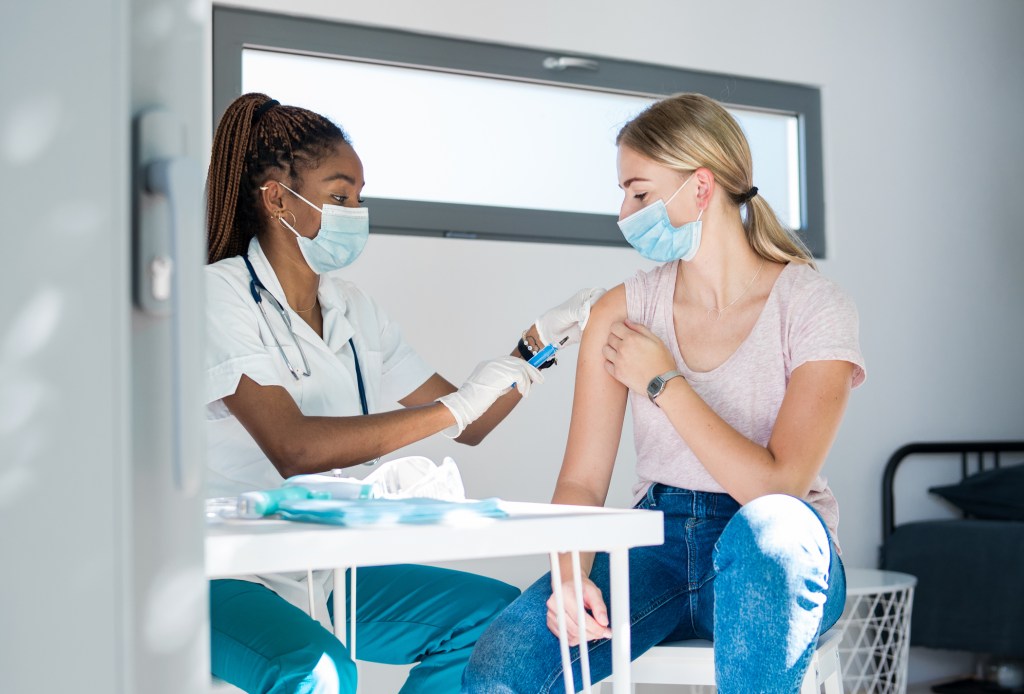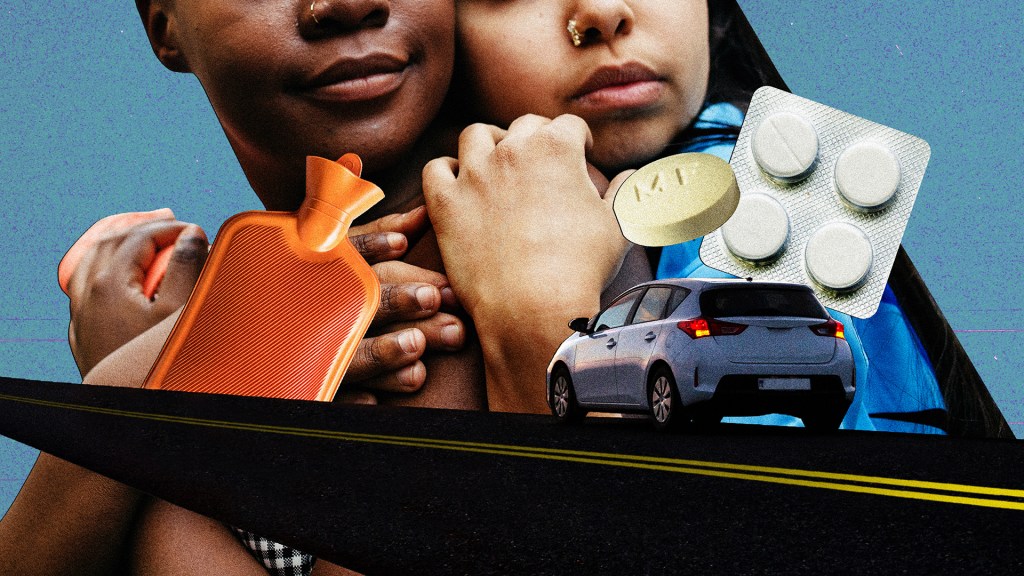Amid a messy and extremely slow COVID-19 vaccine rollout, one option for skipping ahead in the lengthy line appears to be the same tactic used to score new gaming systems or Coachella wristbands: simply showing up, and waiting around.
The vaccine is only usable for several hours after it’s thawed from the subzero temperature at which it’s stored, meaning that doses that go unused at the end of the day expire and will be thrown in the trash, unless there are unvaccinated arms ready and waiting to receive them. Advantageous folks who aren’t yet eligible to make vaccine appointments (or young, otherwise healthy people) have reportedly been getting their shots ahead of schedule by waiting around at pharmacies and vaccine sites, hoping to hear an announcement that the location needs a handful of volunteers to get excess, imminently expiring vaccine doses.
Videos by VICE
So here we are asking once again in these unprecedented pandemic times: Is that allowed? If you lurk around in a drugstore long enough, and on enough days, can you also wait your way into getting an early vaccine without an appointment?
According to a spokesperson for CVS, vaccines “will be offered on an appointment-only basis,” and “walk-in vaccinations will not be offered” under any circumstances. A spokesperson for Walgreens also told VICE that “the only way to receive the vaccine from Walgreens is for eligible individuals to schedule an appointment.”
And yet, in both Los Angeles and Washington, D.C., so-called “vaccine chasers” have gotten lucky by simply showing up and waiting it out. Amesh Adjala, a senior scholar at Johns Hopkins Center for Health Security, also told Fox News in Washington, D.C. that he agrees that excess shots should be distributed, when possible. “There should not be any vaccine being put into a trash can,” he said.
A D.C. couple in their 30s was able to get a vaccine from their local Safeway pharmacy after calling about a waitlist for expiring doses. (A spokesperson for Safeway told VICE that the D.C. incidents were “rare instances.”) And at a Walgreens in Louisville, Kentucky, a young couple got vaccines after hearing from a friend that the location had a few extra doses that needed to be distributed before the end of the day. (Walgreens referred to that specific incident as “an isolated situation,” and clarified that walk-ins are not currently accepted.) There’s also a smattering of TikToks showing and/or joking about young people lurking around pharmacies, lining up at the end of the day and waiting to see if they may get a chance at an extra shot.
The official statement from the National Association of Chain Drug Stores, re: all of this vaccine confusion, is that policies about excess doses “vary by jurisdiction,” and that while some people have gotten expiring doses by waiting around, the NACDS doesn’t want to encourage people into this behavior. This is all extremely conflicting messaging! Not to mention the Houston physician who was nearly sued for distributing excess, expiring vaccines to friends and contacts.
Doctors like Adjala seem to agree that, contrary to the idea that taking an expiring vaccine is somehow selfish, it’s actually a good thing: a system with too few vaccines instead of too many would leave people competing for appointments, so better to have too much vaccine, within reason, than too little. Also, the more people vaccinated the better.
While no one can promise you won’t be shooed from a Walgreens store for hanging out and waiting for the vaccine, someone’s theoretical best bet at securing a would-be trashed vaccine is doing what others have done: calling your local pharmacy (or maybe a few local pharmacies) to see if they have a walk-in waiting list, or merely lurking around near closing time.
Will these people start to get kicked out for loitering in the candy aisle for two hours? Remains to be seen. Enthusiasm and demand for getting the vaccine still far outweighs supply. When and if that will be remedied in the United States remains a mystery.




